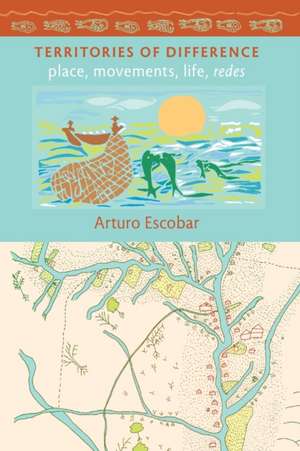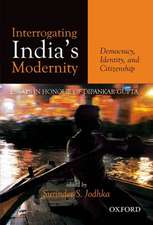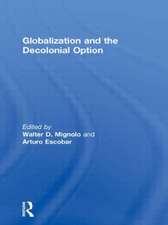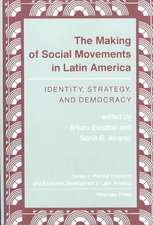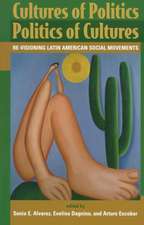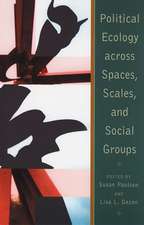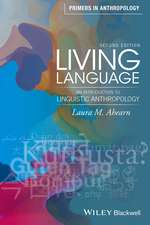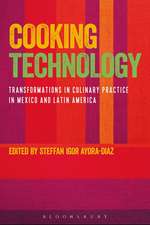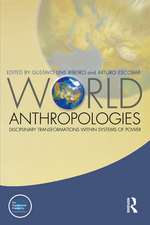Territories of Difference – Place, Movements, Life, Redes: New Ecologies for the Twenty-First Century
Autor Arturo Escobaren Limba Engleză Paperback – 25 noi 2008
Din seria New Ecologies for the Twenty-First Century
-
 Preț: 216.79 lei
Preț: 216.79 lei -
 Preț: 215.49 lei
Preț: 215.49 lei -
 Preț: 192.18 lei
Preț: 192.18 lei -
 Preț: 193.27 lei
Preț: 193.27 lei -
 Preț: 301.38 lei
Preț: 301.38 lei -
 Preț: 346.65 lei
Preț: 346.65 lei -
 Preț: 261.93 lei
Preț: 261.93 lei -
 Preț: 303.11 lei
Preț: 303.11 lei -
 Preț: 305.08 lei
Preț: 305.08 lei - 23%
 Preț: 774.98 lei
Preț: 774.98 lei -
 Preț: 264.26 lei
Preț: 264.26 lei - 19%
 Preț: 604.40 lei
Preț: 604.40 lei -
 Preț: 262.32 lei
Preț: 262.32 lei - 19%
 Preț: 635.15 lei
Preț: 635.15 lei -
 Preț: 260.41 lei
Preț: 260.41 lei -
 Preț: 266.18 lei
Preț: 266.18 lei -
 Preț: 264.05 lei
Preț: 264.05 lei -
 Preț: 225.09 lei
Preț: 225.09 lei -
 Preț: 260.41 lei
Preț: 260.41 lei
Preț: 242.16 lei
Nou
Puncte Express: 363
Preț estimativ în valută:
46.34€ • 48.73$ • 38.29£
46.34€ • 48.73$ • 38.29£
Carte disponibilă
Livrare economică 26 martie-09 aprilie
Livrare express 12-18 martie pentru 41.08 lei
Preluare comenzi: 021 569.72.76
Specificații
ISBN-13: 9780822343271
ISBN-10: 0822343274
Pagini: 456
Ilustrații: 5 tables, 2 maps, 6 figures
Dimensiuni: 153 x 229 x 25 mm
Greutate: 0.71 kg
Editura: MD – Duke University Press
Seria New Ecologies for the Twenty-First Century
ISBN-10: 0822343274
Pagini: 456
Ilustrații: 5 tables, 2 maps, 6 figures
Dimensiuni: 153 x 229 x 25 mm
Greutate: 0.71 kg
Editura: MD – Duke University Press
Seria New Ecologies for the Twenty-First Century
Cuprins
Preface and AcknowledgementsIntroduction; 1. Place; 2. Capital; 3. Nature; 4. Development; 5. Identity; 6. Networks; ConclusionBibliography
Recenzii
A wonderful, massive tour de force by one of todays leading anthropologists. Arturo Escobar links his ethnography to a series of larger pressing debates about globalization and development, biology and nature, and social movements and network theory. The result is a book of astonishing virtuosity, range, and insight. It is nothing less than a model for the dense, interdisciplinary, polyglot theoretical analysis needed to understand experience anywhere in the world today. Orin Starn, author of Ishis Brain: In Search of Americas Last Wild Indian and co-editor of The Peru Reader: History, Culture, PoliticsArturo Escobars eloquent, engaged, and extremely well-informed narrative of the Afro-Colombian movements in their struggles to defend their territories and ways of life is, to my mind, the best book on social movements to have appeared in years. It combines the minutely traced complexity of the struggles and their evolving contexts with much broader issues that appeal to and impact all of us, such as biodiversity, alternatives to development, sustainability of life on earth, and social and cognitive justice. We academics, students, activists of social movementscannot but be powerfully interpellated by this landmark book, and can only honor it by reading it attentively.Boaventura de Sousa Santos, editor of Another Knowledge Is Possible: Beyond Northern EpistemologiesThis book invites us all into alternative projects of world making. Never losing sight of the forces pushing back at us or the colonizing power of Western thinking, Arturo Escobar marshals an extraordinary array of intellectual resources and social networks to galvanize hopeful action. He grounds his honest yet truly inspiring vision in the place-based knowledge and global activism of his longstanding collaborators, the resilient and resourceful Afro-Colombian activists of the Pacific region.J. K. Gibson-Graham, authors of A Postcapitalist PoliticsThe product of a lifetimes work on the pitfalls of development, Arturo Escobars new book is an engaging and engaged effort to bring together knowledge from Western academia and from Afro-Colombian activists. Through his own blend of discursive theory, he makes academia listen, in the words of one of his local interlocutors, to the drumming of a place subjected to capital but resistant to it, brightly illuminating at once the geopolitics of knowledge and of modern empires.Fernando Coronil, author of The Magical State: Nature, Money, and Modernity in VenezuelaArturo Escobar links his ethnography to a series of larger pressing debates about globalization and development, biology and nature, and social movements and network theory. The result is nothing less than a model for the dense, interdisciplinary, polyglot theoretical analysis needed to understand experience anywhere in the world today.Orin Starn, author of Ishis Brain: In Search of Americas Last Wild IndianTerritories of Difference confronts the theoretical and empirical complexities of capitalism, identities, and political struggle. This book will quickly become required reading for everyone interested in contemporary forms of globalization and the social movements organized against them.Lawrence Grossberg, Morris Davis Distinguished Professor of Communication Studies and Cultural Studies, University of North Carolina, Chapel Hill
Notă biografică
Textul de pe ultima copertă
"This book invites us all into alternative projects of world-making. Never losing sight of the forces pushing back at us or the colonizing power of Western thinking, Arturo Escobar marshals an extraordinary array of intellectual resources and social networks to galvanize hopeful action. He grounds his honest yet truly inspiring vision in the place-based knowledge and global activism of his longstanding collaborators, the and resilient and resourceful Afro-Colombian activists of the Pacific region."--J. K. Gibson-Graham, authors of "A Postcapitalist Politics "and" The End of Capitalism (As We Knew It): A Feminist Critique of Political Economy ""Arturo Escobar brings his signature commitments--a focus on the materiality of place, nature, and environmental politics, and a recognition of difference and the inescapable histories of coloniality--to an analysis of regional ecological and cultural struggles in Colombia. It is a singularly original contribution, both empirically and theoretically, which forces us to confront the real complexities of capitalism, identities, and political struggle. This book should be required reading for everyone interested in contemporary forms of globalization and economies, as well as the social movements organized against them."--Lawrence Grossberg, University of North Carolina, Chapel Hill
Descriere
Important theoretical intervention into environmental thought
